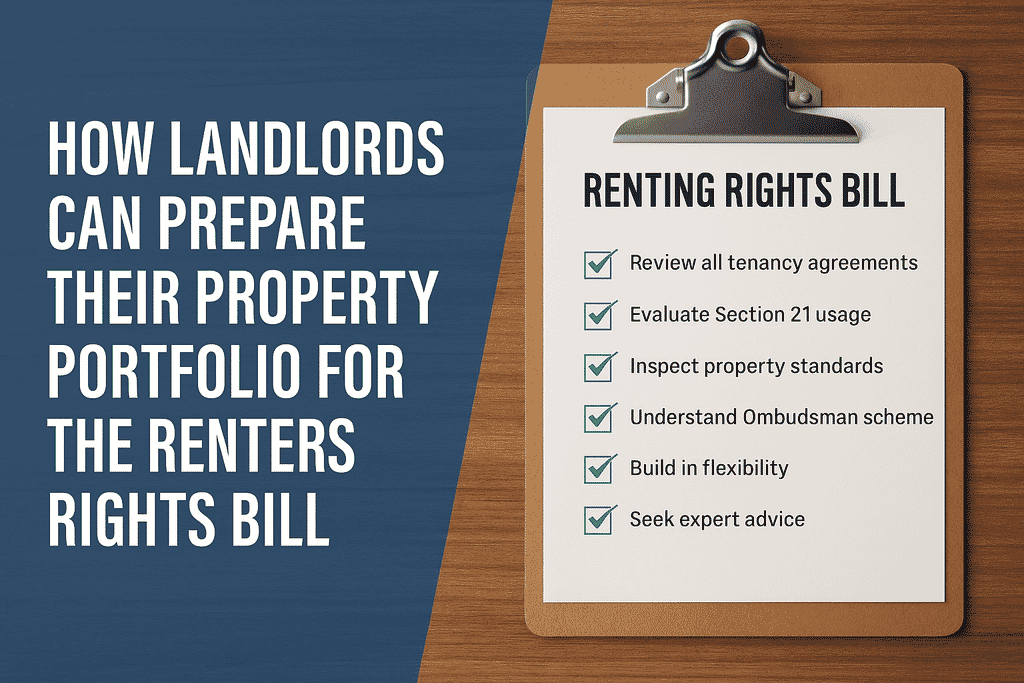
The Renters Rights Bill is set to bring significant changes to the private rental sector in England – and if you’re a landlord, now is the time to act. With Section 21 notices on their way out and a wave of new legislation approaching, aligning your property portfolio with the upcoming changes is critical.
At Michael Tuck Estate & Letting Agents, we’re here to help you adapt with confidence. Below, we’ve outlined a practical, step-by-step checklist to ensure you’re ready for what’s coming in 2025 and beyond.
Renters Rights Bill: What’s Changing?
Before diving into the checklist, here’s a quick refresher on the key proposals in the Renters Rights Bill:
-
Abolition of Section 21 “no fault” evictions
-
A single system of periodic tenancies
-
Stronger grounds for repossession under Section 8
-
New standards for housing quality and property conditions
-
Introduction of a new Property Ombudsman for all landlords
These changes aim to create a fairer rental market for tenants while raising expectations for landlords.
Checklist: How to Prepare Your Property Portfolio
1. Review All Tenancy Agreements
Ensure your contracts are legally up to date and reflect the shift to periodic tenancies. Speak to a lettings expert to future-proof your agreements.
Tip: Remove any references to fixed terms or automatic renewal clauses that may become obsolete.
2. Evaluate Section 21 Usage
If you currently rely on Section 21 notices for managing tenant turnover, start planning alternative strategies.
Tip: Familiarise yourself with the revised Section 8 grounds, especially concerning rent arrears, antisocial behaviour, or moving back into the property.
3. Inspect Property Standards
The Decent Homes Standard will soon apply to the private rental sector. Start conducting pre-emptive inspections to identify potential issues.
Tip: Prioritise damp, mould, and energy efficiency upgrades to avoid future penalties.
4. Understand the Ombudsman Scheme
All landlords will need to register with a new ombudsman. Prepare by reviewing your complaint handling process and documentation procedures.
Tip: Keep a written record of all tenant communications and maintenance logs.
5. Build in Flexibility
With fixed-term tenancies likely to become a thing of the past, consider how this will affect your rental income, void periods, and long-term planning.
Tip: Budget for more frequent changes in occupancy and maintain strong relationships with tenants to encourage longer stays.
6. Seek Expert Advice
Now more than ever, landlords should seek professional guidance to stay compliant and protect their investments.
Tip: Partnering with an experienced letting agent like Michael Tuck ensures your rental strategy is proactive—not reactive.
What Are the Risks of Not Preparing?
-
Legal non-compliance and possible fines
-
Increased void periods due to outdated processes
-
Tenant disputes and potential damage to reputation
-
Difficulty regaining possession of your property
Don’t get caught out. Proactive planning will keep you in control when the reforms take effect.
Future-Proof Your Rental Strategy with Michael Tuck
At Michael Tuck, we help landlords across Gloucester and the surrounding areas stay ahead of market changes. Whether you own a single property or a diverse portfolio, our local lettings experts can provide the legal insight, market knowledge, and property management support you need to thrive post-reform.
Speak to our team today to review your contracts, assess risk areas, and ensure you’re ready for the Renters Rights Bill.















